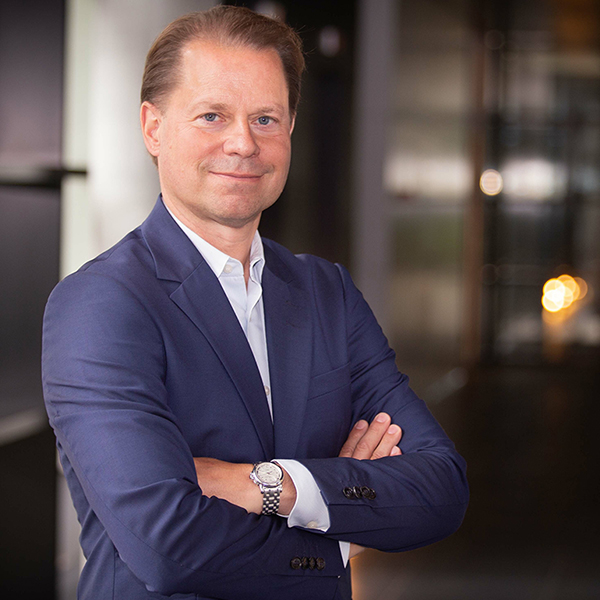With an undergraduate degree in math, Bob Dorrance briefly considered becoming a math teacher. Instead, he pursued graduate studies in business, launching what would become a highly successful career in the investment industry.
“An MBA seemed like a very practical degree to get in order to broaden out my employment opportunities,” says Dorrance, MBA’77, Chairman, CEO and President of TD Securities and Group Head, Wholesale Banking, TD Bank Group.
He chose McGill, drawn by the University’s reputation and a strong desire to live in Montreal.
In the second year of his MBA program, Dorrance was exposed to investment firm Nesbitt Thomson (now BMO Nesbitt Burns) where he landed his first job after graduation in equity research.
He worked for the investment firm for 18 years, then helped found Newcrest Capital Inc., serving as its president and chief executive. TD Bank Group acquired the boutique investment firm in 2000, which was when Dorrance joined TD Securities.
Dorrance was inducted into the Investment Industry Hall of Fame in 2018. “I think the great strength of our capital markets is that they are in fact domestic, that we have a Canadian capital market infrastructure,” Dorrance said in his induction video. “And I think that’s critical in the sense that it will help Canada overall to grow.”
He and his wife, Gail Drummond, BA’77, have generously supported students in McGill’s Desautels Faculty of Management, initially with an MBA Leadership Award, and now with the Robert Dorrance and Gail Drummond International Exchange Award. Highly sought after by students in the MBA program, it supports students who are taking part in an international exchange and is awarded on the basis of academic merit and demonstrated leadership.
We spoke with Dorrance earlier this spring about how the industry has changed during his career and what it takes to thrive in the business. (This interview has been slightly condensed.)
Q. Was there a particular turning point along the way in your career or a key mentor that influenced your career path?
A. I had some really good people that I worked with. The fellow in charge of Nesbitt (Thomson) at the time was Brian Aune, who was probably the person who most influenced my career because that was right at the beginning. Over the years, I met many other people that have been important influences, but the initial person was Brian. It was a partnership business and it was relatively small. And there weren’t actual layers between an entry-level research analyst and the head of the firm.
Q. What are the biggest changes you’ve seen in the industry in your career?
A. It’s changed quite dramatically over the years. It was a pretty small industry when I first started post-MBA. There were four financial pillars then that included banking, insurance, trust companies and investment dealers. And they were separate. The investment dealer component of those pillars was the smallest…It didn’t really have the infrastructure of what it has now in terms of capital, recruiting and training and those types of things.
It was nowhere near the level of activities, anywhere near as financially robust as it is now with respect to arranging of financings or trading and those types of activities. All of that has grown over the years. And of course, when the pillars came down in ̓87, then the banks started to buy the integrated dealers. And that sort of proceeded over a number of years. So now, you have an industry where the larger component is the bank-owned dealers. You still have independent dealers, but the bank-owned dealers are a large part of not only the Canadian industry, but the global industry.
Q. What would your advice be to students who want to work in the investment industry?
A. Keep all the doors as open as they can. Be open-minded about opportunities that exist. There’s perhaps a bit more rigour now around how you get recruited and where you get recruited into. But it’s still an entry-level role that you’re coming into, which is good if you want to be in an investment banking training program or the global markets training program. Be open-minded in that that’s the start and there are many more roles in the business that you could aspire to. Be curious and network as much as you can within the firm that you join or within the business line that you’re joining.
Q. What qualities are most important to thrive in the investment industry?
A. I think you have to be curious because there’s always something going on that’s different or new. I think you have to understand that it is a people business. It’s based on building trusting relationships, whether that’s within the firm that you join or [with] clients that you might be in contact with. I think there’s a misunderstanding sometimes that it’s all about transactions. But I think it’s all about relationships and the building of relationships over time. If you have that as a goal, you’ll do well in this business.


